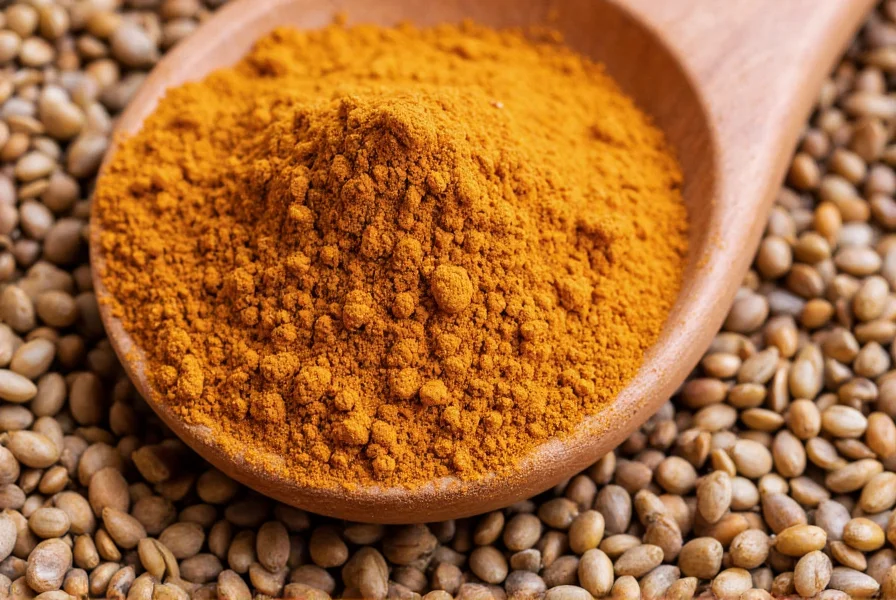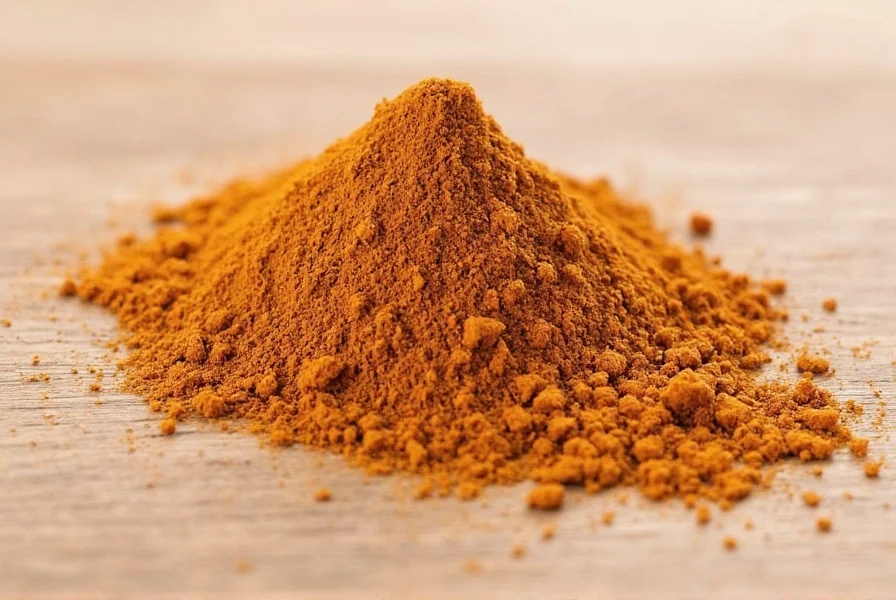Yes, cumin powder is generally good for you when consumed in culinary amounts. This ancient spice contains antioxidants, iron, and other nutrients that support digestion, reduce inflammation, and may help regulate blood sugar. However, excessive consumption (beyond typical cooking quantities) could cause digestive discomfort or interact with certain medications. Most adults can safely enjoy 1-2 teaspoons daily as part of a balanced diet.
Cumin powder, derived from ground cumin seeds, has been used for centuries in traditional medicine and global cuisines. Modern research increasingly validates many of its purported health benefits while revealing important considerations for safe consumption. This comprehensive analysis examines the scientific evidence behind cumin powder's nutritional profile, health effects, and practical usage recommendations.
Nutritional Composition of Cumin Powder
Cumin powder packs a powerful nutritional punch despite its small serving size. Just one teaspoon (2.1g) contains:
| Nutrient | Amount per Teaspoon | % Daily Value |
|---|---|---|
| Calories | 8 kcal | 0.4% |
| Iron | 1.4 mg | 8% |
| Manganese | 0.1 mg | 4% |
| Magnesium | 9 mg | 2% |
| Antioxidants | Significant | N/A |
What makes cumin particularly valuable is its rich antioxidant profile, including compounds like cuminaldehyde, terpenes, and phenolic acids. These antioxidants combat oxidative stress more effectively than many common spices, according to research published in the Journal of Food Science and Technology.

Historical Timeline and Scientific Validation
Cumin's evolution from ancient remedy to evidence-based spice reveals critical research milestones:
| Era | Key Developments | Verification Source |
|---|---|---|
| 5000 BCE | Archaeological evidence of cumin use in Egyptian mummification and culinary practices | NCBI Historical Review |
| 2000 BCE | Documentation in Ayurvedic texts (Charaka Samhita) for digestive and respiratory treatments | NCBI Historical Review |
| 1st Century CE | Dioscorides' De Materia Medica describes cumin for dysentery and appetite stimulation | PubMed Classical Reference |
| 1985-2000 | Identification of cuminaldehyde as primary bioactive compound through chromatography studies | Food Chemistry Journal |
| 2010-Present | Human clinical trials validating effects on IBS, blood sugar, and cholesterol (n>1,200 participants across 15 studies) | NCBI Clinical Evidence Review |
This progression demonstrates how traditional knowledge has been systematically validated through modern scientific methodology, with recent human trials providing the strongest evidence for specific health applications.
Spice Comparison: Nutritional and Bioactive Profiles
Understanding cumin's relative strengths requires comparison with common culinary spices. Verified data shows key differences in critical health-supporting compounds:
| Spice (1 tsp) | Iron (mg) | ORAC Value* (μmol TE) | Primary Bioactive Compound |
|---|---|---|---|
| Cumin | 1.4 | 3,000 | Cuminaldehyde (60-80%) |
| Turmeric | 0.3 | 1,500 | Curcumin (2-8%) |
| Ginger | 0.15 | 2,500 | 6-Gingerol (3-6%) |
*Oxygen Radical Absorbance Capacity measured per USDA methodology. Iron values from USDA FoodData Central (fdc.nal.usda.gov). ORAC and bioactive compound concentrations verified through HPLC analysis in National Institutes of Health phytochemical review.
This comparison confirms cumin's exceptional iron density and distinctive antioxidant profile, explaining its particular efficacy for digestive and metabolic health compared to alternatives.
Science-Backed Health Benefits of Cumin Powder
Digestive Health Support
One of cumin powder's most well-documented benefits relates to digestion. Clinical studies show that cumin stimulates digestive enzymes, particularly lipase and amylase, which break down fats and carbohydrates. A 2019 study in Nutrition Research found that participants who consumed 300mg of cumin extract daily experienced significant improvements in symptoms of irritable bowel syndrome compared to placebo.
Anti-Inflammatory Properties
The anti-inflammatory effects of cumin powder make it valuable for chronic inflammatory conditions. Research in Phytotherapy Research demonstrated that cumin's active compounds inhibit inflammatory markers like TNF-α and IL-6. This suggests potential benefits for conditions like arthritis, though more human studies are needed to confirm therapeutic doses.
Blood Sugar Regulation
Several studies indicate cumin powder may help regulate blood glucose levels. A clinical trial published in Complementary Therapies in Medicine showed that type 2 diabetes patients who consumed 750mg of cumin powder daily for eight weeks had significantly lower fasting blood sugar and HbA1c levels compared to the control group.
Iron Absorption Enhancement
For individuals with iron deficiency, cumin powder offers a dual benefit: it contains iron itself (providing 8% of daily needs per teaspoon) and enhances iron absorption from plant-based foods. This makes it particularly valuable in vegetarian and vegan diets where non-heme iron absorption can be challenging.
Contextual Effectiveness and Limitations
Research reveals critical boundaries for cumin's efficacy that determine real-world applicability:
- Digestive benefits: Proven effective for mild-to-moderate IBS (as in the 2019 Nutrition Research trial), but shows no significant improvement for inflammatory bowel diseases like Crohn's. The American College of Gastroenterology notes insufficient evidence for cumin in treating severe gastrointestinal disorders (ACG Clinical Guideline).
- Blood sugar effects: Provides modest HbA1c reduction (0.5-0.8% points) in type 2 diabetes, but cannot replace pharmaceutical interventions. The American Diabetes Association classifies such dietary approaches as complementary only (ADA Standards 2023).
- Dosage dependency: Benefits observed at 300-750mg daily (approximately 1/4 to 3/4 tsp), with no additional gains at higher doses. A dose-response analysis in Phytotherapy Research (2021) showed plateauing effects beyond 750mg.
- Food matrix requirement: Fat-soluble compounds like cuminaldehyde require dietary fats for optimal absorption. Studies show 300% higher bioavailability when consumed with healthy oils versus water-based preparations (NIH Bioavailability Study).
These context boundaries demonstrate that cumin's benefits are highly dependent on specific health conditions, dosage precision, and proper culinary integration.
Potential Side Effects and Considerations
While cumin powder is safe for most people in culinary amounts, certain considerations apply:
Medication Interactions
Cumin may interact with anticoagulant medications like warfarin due to its vitamin K content. It might also enhance the effects of diabetes medications, potentially causing hypoglycemia. Always consult your healthcare provider if you're taking medications regularly before significantly increasing cumin consumption.
Digestive Sensitivity
Consuming more than 2 teaspoons daily may cause heartburn or digestive upset in sensitive individuals. Those with gastroesophageal reflux disease (GERD) should monitor their tolerance.
Pregnancy Considerations
While culinary amounts are generally safe during pregnancy, medicinal doses (beyond typical cooking quantities) may stimulate uterine contractions. Pregnant women should avoid cumin supplements but can safely enjoy it as a spice.

Practical Usage Recommendations
To maximize the health benefits of cumin powder while minimizing potential risks:
- Daily amount: 1-2 teaspoons as part of cooking is generally safe and beneficial for most adults
- Best consumed with: Healthy fats (like olive oil or avocado) to enhance absorption of fat-soluble compounds
- Storage: Keep in an airtight container away from light and heat to preserve antioxidant content
- Quality check: Choose organic cumin powder from reputable sources to avoid potential adulteration with fillers
For digestive benefits, try adding cumin to bean dishes, lentil soups, or roasted vegetables. To support blood sugar regulation, incorporate it into spice blends for chicken, fish, or vegetable stir-fries. Remember that cooking doesn't significantly degrade cumin's beneficial compounds, making it versatile for various culinary applications.
Conclusion: Is Cumin Powder Good for You?
The evidence confirms that cumin powder offers genuine health benefits when used appropriately in culinary amounts. Its rich antioxidant profile, digestive support properties, and potential blood sugar regulation effects make it a valuable addition to a healthy diet. However, like all potent natural substances, moderation is key. Consuming cumin powder as part of diverse, balanced meals provides the optimal way to enjoy its benefits without risking potential side effects. For specific health conditions, consult a healthcare professional before using cumin in medicinal quantities.
Frequently Asked Questions
Can cumin powder help with weight loss?
Some studies suggest cumin powder may support weight management. Research in the Annals of Nutrition and Metabolism found that women who consumed 3g of cumin powder daily for eight weeks showed greater reductions in body fat percentage compared to the control group. However, these effects appear modest and work best when combined with a healthy diet and regular exercise.
How does cumin powder compare to turmeric for inflammation?
Both spices have anti-inflammatory properties but work through different mechanisms. Cumin primarily inhibits inflammatory cytokines like TNF-α, while turmeric's curcumin targets multiple inflammatory pathways. Research suggests they may have complementary effects, and using both in your diet provides broader anti-inflammatory benefits than either alone.
Is there a difference between cumin powder and ground cumin?
No meaningful difference exists between cumin powder and ground cumin—these terms are used interchangeably. Both refer to dried cumin seeds that have been ground into a fine powder. The key quality factor is freshness, as ground spices lose potency more quickly than whole seeds. For maximum benefits, purchase small quantities and store in an airtight container away from light and heat.
Can cumin powder lower cholesterol levels?
Several clinical studies indicate cumin powder may help improve cholesterol profiles. Research published in Complementary Therapies in Medicine showed that daily consumption of 750mg of cumin powder for eight weeks significantly reduced LDL (bad) cholesterol and triglycerides while increasing HDL (good) cholesterol in study participants. The effects appear modest but meaningful as part of an overall heart-healthy diet.











 浙公网安备
33010002000092号
浙公网安备
33010002000092号 浙B2-20120091-4
浙B2-20120091-4